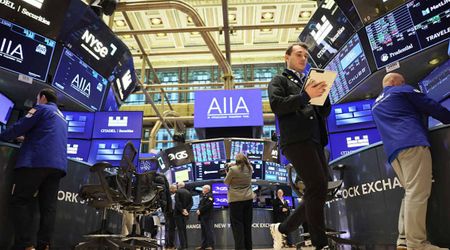Americans Are Spending More and Saving Less; Is Recession Inevitable?

With the prices spiraling of almost everything in the United States, it is shocking to see that people are saving less and spending more on frugal items. Economists and financial experts are noticing the trends where Americans are saving less percentage of their paychecks as compared to their spending with each passing day. This has been quite helpful for the US economy but the predictions are if this trend continues, the economy might slip into a recession. Experts say that the strategy of spending more and saving less will not work in future times as people will be more inclined towards savings. These fluctuations might make the economy feeble. Let's have a look at the American's spending percentages over the years.

The United States economy gets a 70% boost from people purchasing and spending money. Is the COVID-19 pandemic the reason for higher spending? People were saving 7% before the pandemic which declined to 5.3% in last May, as per the data from the Commerce Department.
Gus Faucher, a chief economist at the PNC Financial Services Group says that on average people personally save around 6.2% of their income. He further reminded us that people are spending more money now but this trend will come down in the coming years.
When the pandemic hit the whole world, everyone rushed to save money for necessities as it was a fight for living. During that phase, people's savings went up to 32% but by June 2022, the rate dropped to 2.7% as they stopped saving money. In 2021, people saved $2 trillion but by September 2022, just $430 billion was left, which means their savings were exhausted and they were spending amounts from their paychecks. Gregory Daco, chief economist of EY-Parthenon comments on the spending trend and says, "If you’re stretching your budget for the holidays, that’s one thing. If you have to do that to pay for your utilities, that’s a very different thing.”
One other possible reason for not spending much this year is attributed to the retirement of a larger American population. When people retire, unless they are government employees, they tend to spend less on unnecessary items as they have to plan their survival. An Indianapolis citizen Cynthia Woltjer who is 85 years old, shares that she and her husband have reduced their spending since the time they retired. She further mentions that going out for dinner and paying hefty prices for things that are no longer needed have been reduced. When she was in service and earning a good amount, the couple did not worry much about their expenses but now as the prices are touching the skies, they have to regulate their budgets as they cannot just rely on pensions, said Woltjer.
Amidst all the news of recession, Americans are not all worried and are feeling more confident about their economy. They have a common notion that the country will not fall and easily dodge the recession phase even though the Federal Reserve has upsurged its interest rates just to control inflation. In the opinion of economists like Faucher and Daco, Americans pulling back their spending won't provoke a recession. People can easily save money if they are earning well at their jobs and they don't need to live in fear of recession as the possibilities have gone down from 61% to 36%. But still, the risk prevails. Economists predict that yearly jobs will decline slowly from 250,000 in 2023 to just under 100,000 this year. The growth of increased wages will be slow and might touch 3.5%, which is less than the previous growth of 4.5% the market witnessed.























